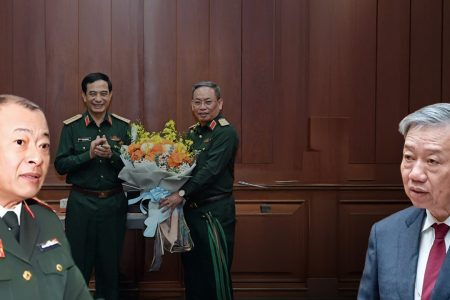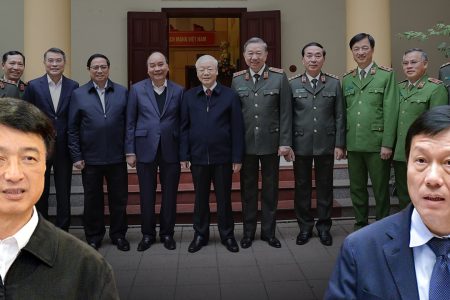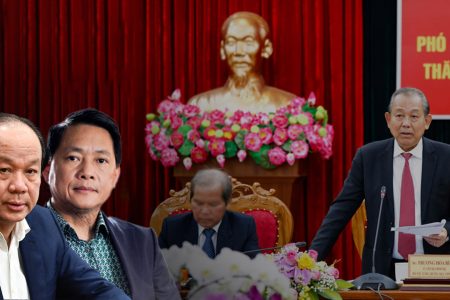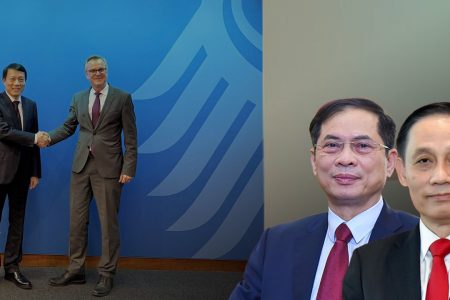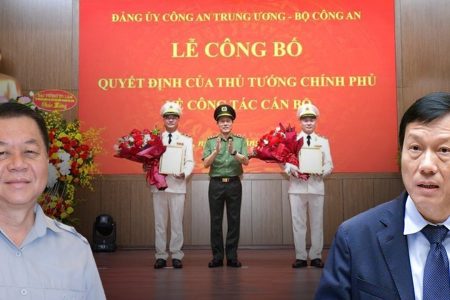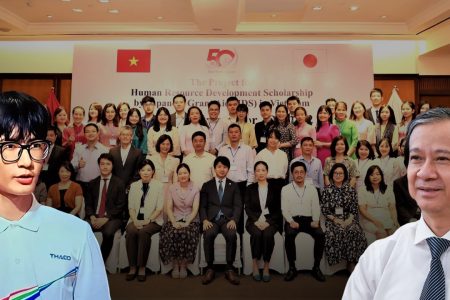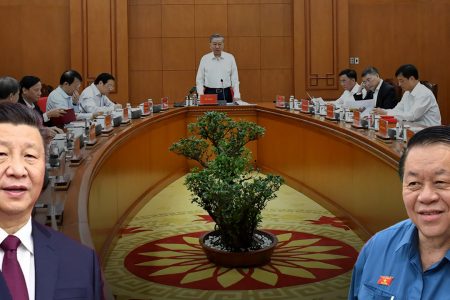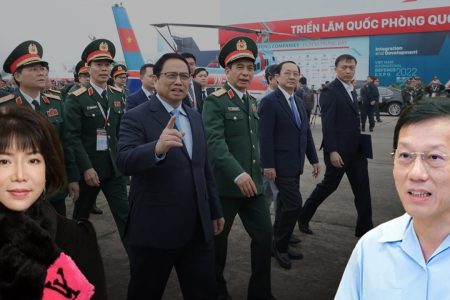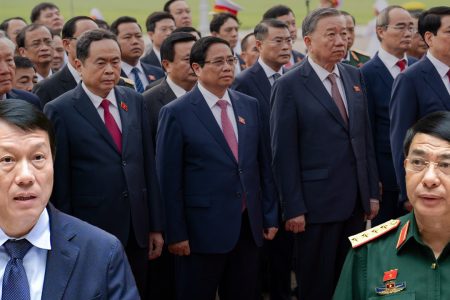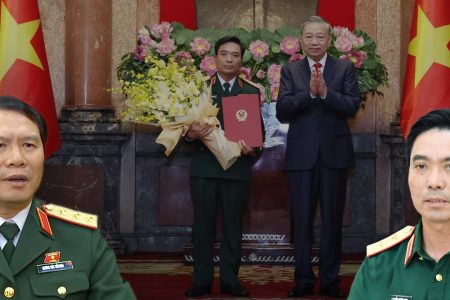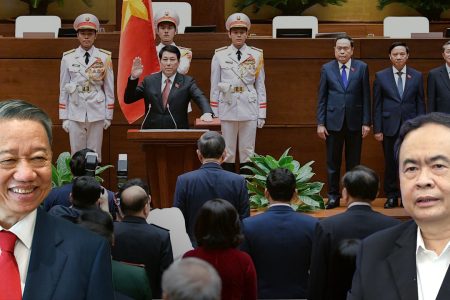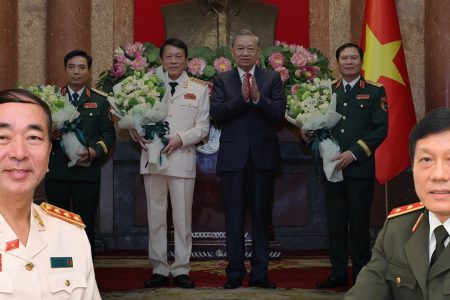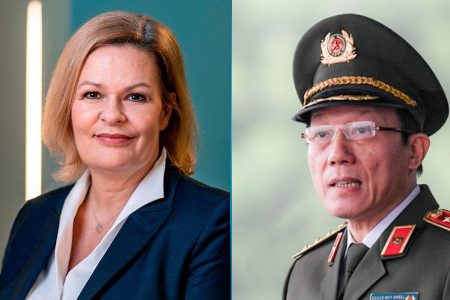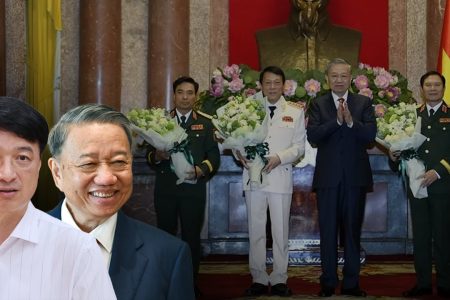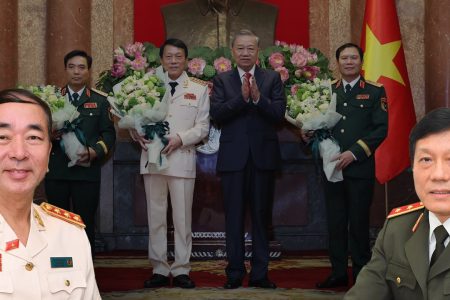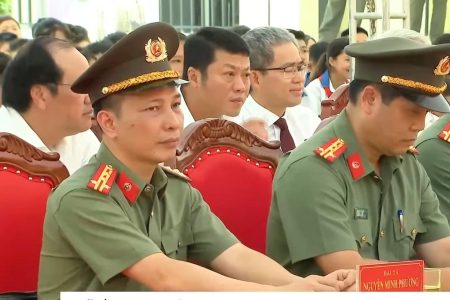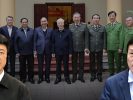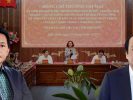Lawyer Vu Duc Khanh
September 25, 2024
General Secretary cum State President To Lam’s speech at the Asia Society in New York on September 22, 2024 demonstrated a fundamental lack of understanding of the values that the United States and its people have always pursued. Although Lam emphasized the development in the relationship between Vietnam and the United States, from former enemies to comprehensive strategic partners, he completely ignored the core disagreements on human rights, freedom and democracy. These issues are not just different views on policy, but also the foundation of a civilized society that the United States, along with many countries in the world, has been and is protecting.

Universal Values: Democracy, Freedom, and Human Rights
In his speech, the former Vietnamese top police chief praised the development of the Vietnam-US partnership, but he seemed to fail to understand the values of the United States and Western democracies. Civil rights, political rights, and human rights are not factors that can be negotiated or compromised for economic or commercial interests. These values are the core of the long-term prosperity and stability of any country. If Vietnam continues to avoid protecting and implementing these rights, the country will face resistance from the international community, no matter how much trade relations develop.
What the world, and especially the United States, wants to see from Vietnam are not empty promises or excuses about historical challenges. Instead, the world wants to see concrete actions to improve the reality of freedom, democracy, and human rights in Vietnam. Words are no longer enough to build trust or strengthen partnerships, only concrete actions can convince the United States and the international community.
Concrete Actions Over Words: The Demand for Political Reform
In the context of the comprehensive strategic partnership, Lam needs to realize that Vietnam’s progress cannot be based solely on commitments to economic and trade cooperation. The world has been patient enough to wait for political transformation in Vietnam. If Vietnam wants to continue to integrate deeply and truly become a country of international stature, political institutional reform is indispensable.
The concrete action that Vietnam needs to take is to initiate measures to protect freedom of speech, freedom of the press, and other civil rights. The Vietnamese government needs to provide a clear and transparent roadmap for the democratization process. This not only meets the expectations of the United States but also the demands of the Vietnamese people – who yearn for a freer society where all citizens have the right to participate in the governance of the country.
Political Institutional Reform: Cannot Be Delayed
Vietnam cannot continue to delay political reform if it wants to avoid being left behind in the global competition. Political institutional reform is not only a requirement from the United States or the international community, but also an internal need of Vietnam. A strong government is one that dares to recognize its limitations and is willing to change for the benefit of the nation.
Hanoi needs to start by reforming the law, expanding freedom of the press, freedom of assembly and freedom of elections. Legislative and executive bodies need to be restructured to ensure oversight and accountability in state management. In addition, the judicial system must be reformed to ensure independence and fairness, in order to protect the rights of all citizens.
Lessons from Other Countries
Vietnam is not the only country facing the challenge of political reform. Many countries, from Eastern Europe after the Cold War to some Asian countries, have undergone important reforms and achieved sustainable development. These countries have overcome economic and social difficulties thanks to expanding democratic rights and improving government transparency. Vietnam can learn from these lessons and develop a democratization roadmap that suits its own context.
Inaction only leads to falling behind in a globally competitive environment where countries are making rapid progress by promoting freedom and democracy.
Democratization Roadmap: Vietnam’s Future
Lam’s speech emphasized the past and achievements in relations with the United States, but what the world is waiting for is a plan for the future. Vietnam’s democratization roadmap needs to be established now. This could include expanding political participation, reforming the electoral system, and creating a vibrant civil society where freedom of speech, association, and expression are respected.
Hanoi needs to recognize that maintaining a closed political system only leads to domestic discontent and international distrust. Change is inevitable, and political reform is necessary if Vietnam is to truly integrate and thrive in a rapidly changing world.
The urgent question now is: When will Lam and the CPV turn their promises of reform into concrete actions to meet the aspirations of the Vietnamese people for “freedom, democracy and prosperity”?



